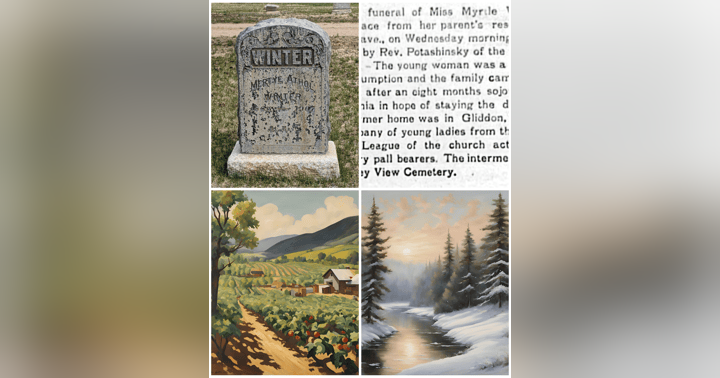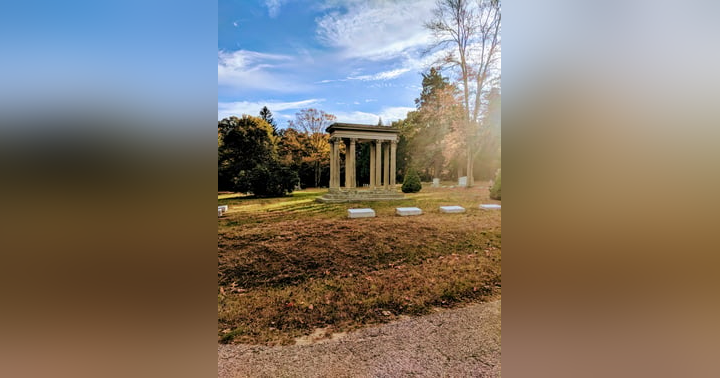Verner Reed: A Builder in Waste Places

Verner Zevola Reed was a successful businessman who made his fortune through his mining operations in Colorado's Cripple Creek region. However, Reed's legacy extends beyond his business success. He was also known for his philanthropic endeavors and his dedication to improving the lives of others.
Verner Reed was born in Iowa on October 13, 1863 and grew up in Illinois. After completing his education, he began his career as a newspaper man in Chicago. He worked as a reporter and editor for several newspapers, including the Chicago Daily News and the Chicago Tribune.
In 1891, Reed moved to Colorado Springs, where he met his wife Mary. The couple married in 1892 and had three children, Margery, Verner Jr., and Joseph.
After the mining boom in Cripple Creek, Reed continued his real estate ventures in the community and invested in gold mines, playing an active part in the sale of the Independence Mine. He also ventured into other business areas in Colorado, including fruit orchards and the Western Sugar Land Company. During his time in Europe, where he spent eleven years with his wife, Reed invested in undeveloped land in western Colorado and Wyoming, where oil was later discovered. He returned to Colorado and formed the Midwest Refining Company, which contributed greatly to his fortune.
Reed's philanthropic efforts began early in his career. As he became more successful in the mining industry, he used his wealth to support various charitable causes, including the construction of hospitals, schools, and other community institutions. His contributions were not limited to the communities surrounding his mining operations. He also donated to causes across the United States and Europe, where he spent time studying art and literature.
During World War I, Reed donated generously to the war effort, contributing both financially and through his personal involvement. He served as the chairman of the Colorado War Savings Committee and helped to organize fundraising campaigns across the state.
Verner Reed had been ill for some time when he traveled to California in early 1919 in an effort to recover his health. While he was there, his condition improved, and he was able to enjoy some of the amenities that California had to offer. However, on April 20, 1919, Reed suddenly became ill with pneumonia and died at the age of 56. Reed's death was widely mourned in Colorado and beyond. The Denver Post described him as a "builder in waste places," a reference to his efforts to promote economic development in areas that had been overlooked by other entrepreneurs.
Mary, along with help from their children, would continue Reed's work after his death. One of her most significant contributions was to Denver University, where she served on the Board of Trustees and donated generously to support the university's programs and facilities. Mary was also involved in the management of the family's mining operations in Cripple Creek. In the 1930s, she reopened a family gold mine that had been closed for years and oversaw its operations. Under her leadership, the mine once again became a productive and profitable venture.
Mary was widely recognized for her philanthropy and community service. In 1942, she was named the Outstanding Woman in Colorado.
Mary died on February 22, 1945, at the age of 78. She was interred alongside her husband in the crypt beneath the breathtaking mausoleum and chapel in Mt. Olivet Catholic Cemetery in Wheat Ridge, Colorado. The Reed family crypt is located in a mausoleum that was crafted from Carrara marble by Raffaello Romanelli in Florence, Italy. Constructed in the late Gothic style, this small-scale interpretation of the cathedral of Milan features a votive chapel dedicated to St. Benedict. The mausoleum was built between 1919-1923 at a cost of roughly $250,000, and the chapel rests above the Reed family crypt.
(Photo of Reed Family Mausoleum taken by Jennie Johnson -- Family Photos (all posted to www.findagrave.com): Verner Z. Reed: Verner Z Reed (from the family album of Elizabeth Hamlin Hylbom) - the photo of Reed was cropped from an image that pictured Reed and Elizabeth's father, C. C. Hamlin -- Mary Johnson Reed -- Reed children taken 3 December 1906 in Paris, France. From Pikes Peak Library District digital image 290-11864.)
#VernerReed #MaryReed #ColoradoPhilanthropists #CrippleCreekMining #CommunityBuilders #DenverUniversity
#CharitableGiving #LegacyofGiving
#ColoradoHistory #PhilanthropyImpact
#ReedFamilyCrypt #MtOlivetCemetery.















